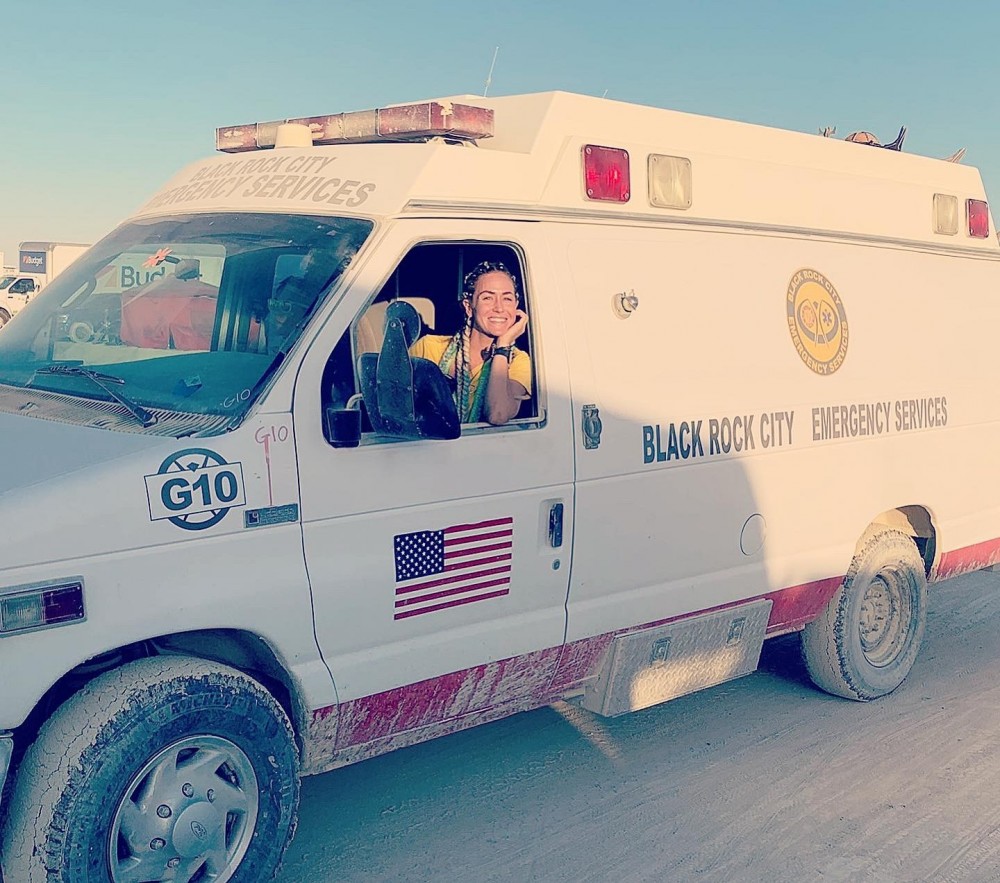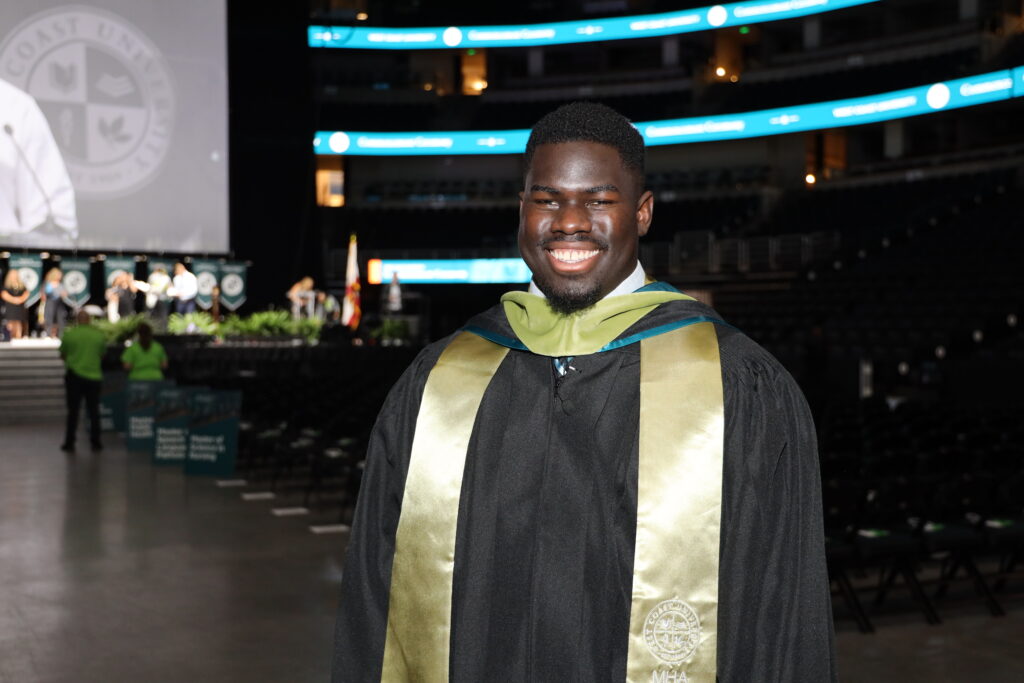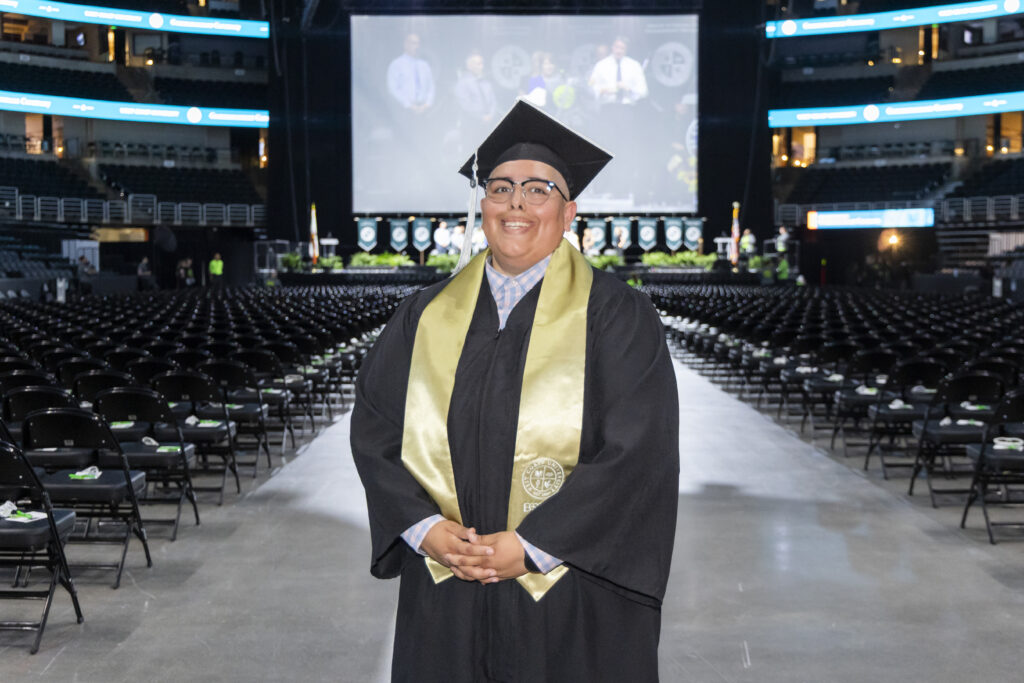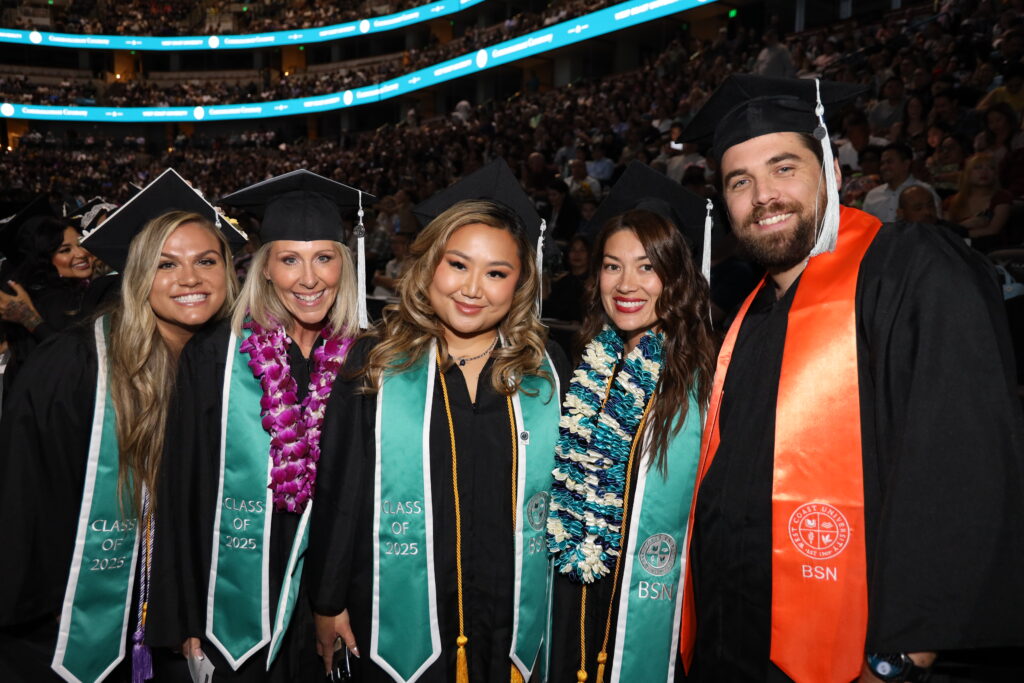There was a time when few people could have predicted that West Coast University alumna Elyse Shelger would make a career out of nursing.
“My first degree was in communications,” Shelger explained. “I was playing collegiate soccer and after college I ended up playing professionally in Norway.”
Shelger spent two years as a professional soccer player. However, as the injuries piled up, she was aware that the experience wasn’t meant to last forever.
“I knew it was time to take next steps and figure out what I was going to do long-term,” she said.
Shelger moved back home to San Francisco and it was there that her career in healthcare began to take shape.
So, after professional soccer, why nursing?
I knew I wanted to help people and I knew I wanted to work with children, but I didn’t really know in what capacity. I actually interned at a physical therapy clinic because, after all my sports injuries, I thought maybe I wanted to be a physical therapist. I quickly realized it may not fulfill me in certain ways I had hoped. Knowing I wanted to work with children, that route would present more roadblocks.
So, it took a lot of research and talking to people in different areas. I talked to PAs, NPs, a pediatrician, an occupational therapist, nurse anesthetist … and I learned through all of my interviews that nursing is the one degree that you have a lot of flexibility to build on. That was the most appealing thing to me, knowing that I could work with kids — which was a goal of mine — and if, down the road, I wanted to possibly consider nurse anesthetist, I would be on the right path.
I’ve kind of started to do that and build on my degree. I have my master’s degree in nursing leadership from WCU. I got my certification in critical care nursing for pediatrics and my nurse executive board certification.
You’ve mentioned that you’ve always wanted to work with children. What is it about pediatric nursing that calls to you?
It’s such a vulnerable population. I wanted to use my voice for the people who might not have one — often that’s little babies and kids who don’t even know how to describe pain. You have to really use your communications skills and empathy to pull that out. It just felt right to me and I wanted to contribute in that way.
Would you say that anybody could be a pediatrics nurse?
That’s a great question. I think the answer is probably yes, but it won’t come as naturally to most people. It takes a very specific person to feel comfortable around children, to feel confident having really difficult conversations with parents, and also to have the emotional toughness to handle the devastating things you might see.
It’s a balance. You have to have that soft side and still enough toughness to protect yourself emotionally. Just being really tough won’t make you a good pediatrics nurse. They more than anybody need some coddling, somebody who will hold their hand, maybe sing to them. It’s important to also be a softie.
I don’t think that means certain people can’t do it. It just means it’ll take a lot more practice.
Is there anything you do to prevent yourself from burning out?
I think the most important thing we can do is listen to our bodies. Take time when you need it and make changes when you need it — like if you’ve been working the night shift for five years and it’s starting to wear on you, that’s a sign it might be time to try day shifts.
I’ve made many changes throughout my career. One of the things I did was change to part-time. I was able to keep my benefits and work fewer nights a week.
At one point, I also worked for a skin care company. The opportunity came up and I thought it was a great opportunity to work as a nurse manager. So, I took this position managing first one skin care clinic. By the time I left three years later, I was managing all of the nurses and laser technicians globally. I was travelling to Hong Kong, London, New York, Chicago! I was training, hiring, writing protocols, working really closely with our medical directors.
What I learned is that needing a break from the ICU doesn’t mean I’m not a good ICU nurse. It was a complete change to what I was used to. I learned so much and I realized I love managing and leading teams.
It was while I was working at the skin care clinic that I applied to WCU to get my master’s degree in nurse leadership.
How was that? Did you find you had all the resources you would expect from an on-campus program?
It was really busy because I was working full time. The online program was amazing. I don’t know that I could have done what I did if I was also attending in-person classes. With the online classes, I was able to do it on my own time and that’s the only way I was able to make it happen.
I think you have to be a self-starter. You have to reach out and ask for help when you need it. Those resources were there any time that I needed anything. If I had a question about an assignment, I got a response. You just need to be able to take that personal responsibility and use your voice.
Is there anything else that you really value from WCU?
The Alumni Association. Having a school that supports you after you graduate is unique. WCU really reaches out to alumni — sending job opportunities, keeping people supported and feeling valued. It’s been really interesting having been to three colleges and seeing how different it is with WCU, how much they care about you after you’re gone.
Finally, what happens if Norway calls and wants you back?
I’d go — kidding! I knew when I retired, I was retiring for the right reasons. I had so many injuries. I would have to decline because I have to do what’s best for my body, my career and my future.
But if my San Francisco women’s league calls and says they’re going to Japan for the world championships, I’m definitely going.
WCU provides career guidance and assistance but cannot guarantee employment. The views and opinions expressed are those of the individuals and do not necessarily reflect the beliefs or position of the school or of any instructor or student.



